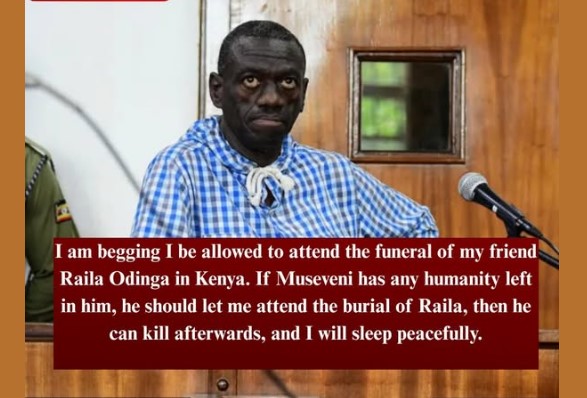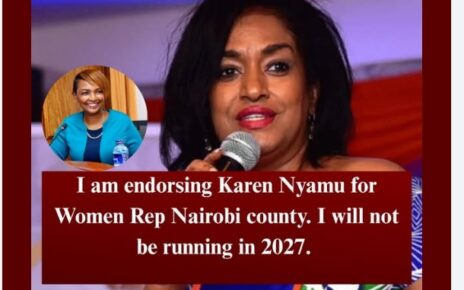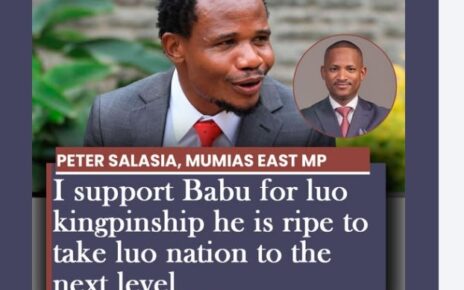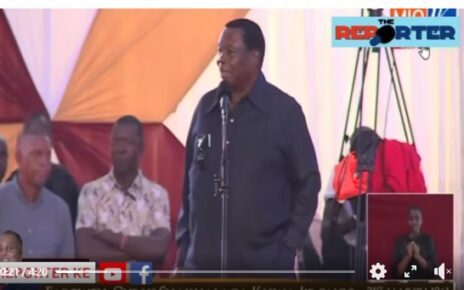Ugandan opposition leader Dr. Kizza Besigye has made an emotional appeal to be allowed to travel to Kenya to attend the burial of his long-time friend and political ally, Raila Amolo Odinga. Speaking from Kampala, Besigye pleaded with Ugandan President Yoweri Museveni to permit him to cross the border, saying he was ready to face any consequences afterward.
“I am begging I be allowed to attend the funeral of my friend Raila Odinga in Kenya,” Besigye said, his voice breaking with emotion. “If Museveni has any humanity left in him, he should let me attend the burial of Raila, then he can kill me afterwards, and I will sleep peacefully.”
The heartfelt plea has touched many across East Africa, underscoring the deep bond between the two veteran opposition leaders who, for decades, stood together in their shared struggle for democracy, justice, and good governance in the region. Raila and Besigye’s friendship goes back many years, forged through mutual respect, political solidarity, and a common vision of liberating their people from oppressive systems.
Besigye’s statement reflects the pain and frustration of a man who, much like Raila, has spent his life confronting state power at great personal cost. Both men have endured arrests, imprisonment, intimidation, and political persecution for daring to challenge entrenched regimes. Their friendship symbolized a spirit of Pan-African unity—one that transcended borders and political ideologies.
In his message, Besigye described Raila as a “brother in the struggle,” recalling how they frequently consulted and supported each other in their respective battles for freedom. He lamented that even in death, the system that both he and Raila fought against continues to suppress their voices. His plea to Museveni was not just a request to attend a funeral, but a cry for recognition of the humanity and shared ideals that connected the two leaders.
The news of Besigye’s emotional appeal has spread widely across social media, with many Kenyans and Ugandans expressing sympathy and admiration for his courage. Some called on regional leaders, including President Museveni, to allow him safe passage as a gesture of respect for the late Raila Odinga. Others described the situation as symbolic of the wider struggle for political freedom in East Africa—a struggle that both Raila and Besigye personified through decades of sacrifice.
Raila Odinga’s death has sent shockwaves across the continent, with tributes pouring in from political figures, human rights defenders, and ordinary citizens alike. His passing marks the end of an era for pro-democracy movements in Africa, and for Besigye, missing his burial would be a personal and political heartbreak.
Dr. Kizza Besigye’s emotional plea to attend Raila Odinga’s funeral serves as a poignant reminder of the bond between two giants of African opposition politics. His words—“If Museveni has any humanity left in him, he should let me attend the burial of Raila, then he can kill me afterwards”—capture the pain, defiance, and undying spirit of those who have dedicated their lives to fighting for justice. Whether or not his wish is granted, Besigye’s message will be remembered as a powerful testament to the enduring friendship between two men who never gave up on the dream of a freer, fairer Africa.



